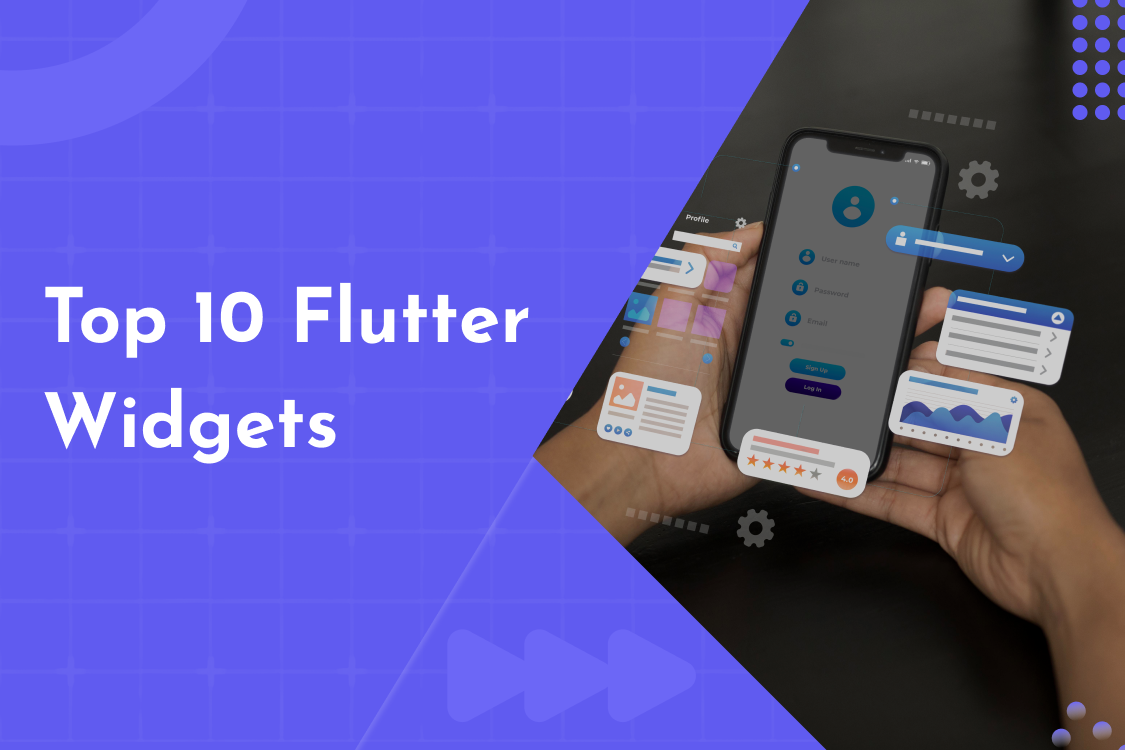We love to hear from you about your project.

If you’ve ever played around with Flutter or you're thinking about using it to build your next app, you've probably heard that “everything in Flutter is a widget.” Sounds simple, right? But what does that actually mean? In this blog, we’ll break it down for you — what Flutter widgets are, why they’re important, and which ones you should totally know about.
In simple words, Flutter widgets are the building blocks of your app. Think of them like Lego bricks. Each piece—whether it’s a button, text box, image, or layout—is a widget. You stack them together to build your user interface.
There are two main types:
Flutter organizes widgets into different categories to make life easier. Some common categories include:
Row, Column, Stack, and Container help structure your UI.
Widgets like Padding, Margin, and Opacity help make your UI look nice.
Widgets like TextField, Button, Checkbox, and Switch handle user input.
Flutter even provides iOS-style and Android-style widgets like CupertinoButton and MaterialButton.
You can explore all of these in the official Flutter widget catalog.
According to Innoventix Solutions, here are some top Flutter widgets every developer should know:
Ensures your content doesn’t get hidden behind notches, status bars, or curved screen edges.
Helps you put size limits on your widgets, which is super useful for responsive layouts.
Automatically resizes its child to fit within itself. Perfect for making your design look consistent on different screen sizes.
Adds smooth and beautiful tab bar animations—great for modern navigation.
Lays out widgets in multiple rows or columns if there’s not enough space in one line.
Easily change how transparent or visible a widget is.
A common circular button for performing the main action in a screen—used in almost every modern app.
Sites like Syncfusion offer a huge library of third-party widgets. These are customizable and optimized for performance across platforms like Android, iOS, Web, and even desktop. Perfect if you’re building something advanced and don’t want to start from scratch.
If you’re just starting out, check out beginner-friendly content on GeeksforGeeks or go straight to the source with Flutter’s official documentation. There’s something there for everyone.
Flutter widgets are used to build every part of your app’s UI—from text and buttons to layouts and animations.
Stateless widgets don’t change over time. Stateful widgets can update dynamically when something happens (like a button being pressed).
Yes! They can save time and give you powerful features out of the box. Syncfusion offers one of the best collections.
Absolutely. You can build custom widgets by combining existing ones or by writing entirely new ones using Dart.
Start with Container, Row, Column, and Text. They’re the foundation of most Flutter UIs.
Whether you’re just getting started with app development or you’re looking to level up your Flutter game, understanding Flutter widgets is essential. They’re what make Flutter fast, flexible, and fun to work with. The more you explore, the more creative your apps can be.
Need help building a Flutter app? The team at Innoventix Solutions is here to help!
Note: Give us a call or leave a message, we endeavour to answer all enquiries within 24 hours on business days.
We love to hear from you about your project.
If you want to get a free consultation without any obligations, fill in the form below and we’ll get in touch with you.